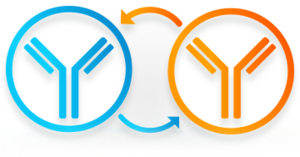Switching* patients from originator biologicals to biosimilars has been a topic of keen interest in recent years across the globe, as more biosimilars have emerged onto the market. Authors from Shelston Intellectual Property discussed the unique approach that Australia has taken to switching.
Switching from biologicals to biosimilars in Australia
Biosimilars/General
|
Posted 19/06/2020
 0
Post your comment
0
Post your comment

Australia adopted a number of guidelines from the EU on similar biological medicinal products back in 2008 [1]. Thereafter, the country approved its first biosimilars, Aczicrit and Grandicrit (epoetin lambda) in 2010 [2]. However, it is only in the last 2‒5 years that biosimilars to the disease‐modifying antirheumatic drugs (DMARDs), e.g. infliximab, rituximab, etanercept and adalimumab, have come onto the market. As of February 2020, the Schedule to Australia’s Pharmaceutical Benefits Scheme (PBS) listed 86 originator biologicals, with 17 having one or more biosimilars.
However, despite the availability of more biosimilars in the country and initiatives by the Australian Government to reduce the administrative burden of switching for prescribers and to enhance consumer confidence in biosimilars, the uptake of biosimilar products has remained limited in Australia.
This slow market uptake of biosimilars in Australia has generally been attributed to the understandable lack of familiarity and comfort with biosimilars by physicians, pharmacists and patients.
Dr Roshan Evans and colleagues therefore expect that confidence in biosimilars will increase with time. They also think that confidence is likely to be enhanced through substitution policies and initiatives (such as Australia’s practice of ‘a’ flagging biosimilars on a case-by-case basis), clearer guidelines on interchangeability and substitutability designations, expert medical consensus statements on biosimilar use, as well as pricing incentives.
*Switching is defined as a decision by the treating physician to exchange one medicine for another medicine with the same therapeutic intent in patients who are undergoing treatment.
Related article
Australia approves five biosimilars since June 2019
References
1. GaBI Online - Generics and Biosimilars Initiative. Australian guidelines for biosimilars [www.gabionline.net]. Mol, Belgium: Pro Pharma Communications International; [cited 2020 Jun 19]. Available from: www.gabionline.net/Guidelines/Australian-guidelines-for-biosimilars
2. GaBI Online - Generics and Biosimilars Initiative. Biosimilars approved in Australia [www.gabionline.net]. Mol, Belgium: Pro Pharma Communications International; [cited 2020 Jun 19]. Available from: www.gabionline.net/Biosimilars/General/Biosimilars-approved-in-Australia
Permission granted to reproduce for personal and non-commercial use only. All other reproduction, copy or reprinting of all or part of any ‘Content’ found on this website is strictly prohibited without the prior consent of the publisher. Contact the publisher to obtain permission before redistributing.
Copyright – Unless otherwise stated all contents of this website are © 2020 Pro Pharma Communications International. All Rights Reserved.
Source: PBS, Shelston Intellectual Property
Research
Reaching ESG goals in pharmaceutical development
What is the future for the US biosimilar interchangeability designation
News
EMA recommends approval for insulin glargine biosimilar Ondibta and denosumab biosimilar Osqay
FDA approves denosumab biosimilars Osvyrti and Jubereq, Boncresa and Oziltus
Most viewed articles
The best selling biotechnology drugs of 2008: the next biosimilars targets
Global biosimilars guideline development – EGA’s perspective
Related content
Samsung Bioepis wins Pyzchiva case; Regeneron patent rulings threaten foreign biosimilars
Chinese biosimilars go global: growth, partnerships, and challenges
Stelara biosimilars enter US market with 85% discount in 2025
IFPMA publishes position on pharmacy-mediated substitution for biosimilars
Samsung Bioepis wins Pyzchiva case; Regeneron patent rulings threaten foreign biosimilars

Biosimilars/General Posted 30/07/2025
Chinese biosimilars go global: growth, partnerships, and challenges

Biosimilars/General Posted 30/04/2025
IFPMA publishes position on pharmacy-mediated substitution for biosimilars

Biosimilars/General Posted 21/03/2025
The best selling biotechnology drugs of 2008: the next biosimilars targets







Post your comment